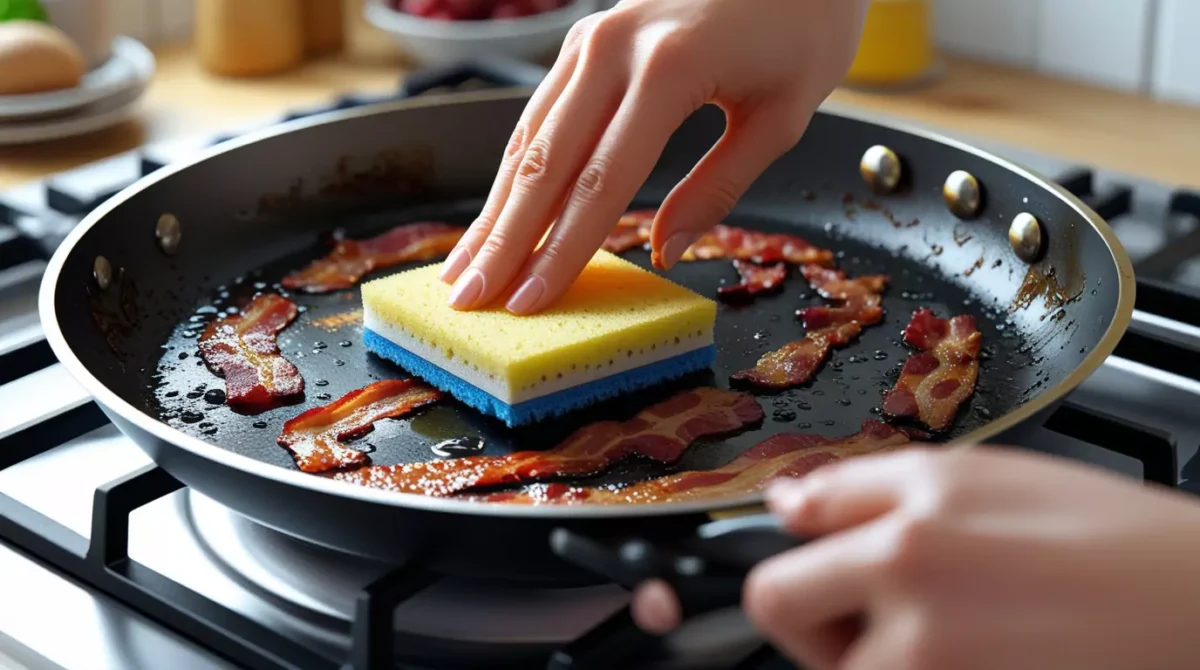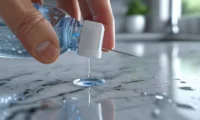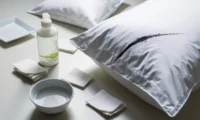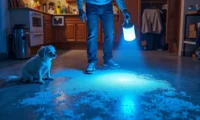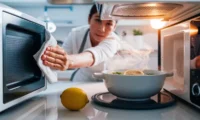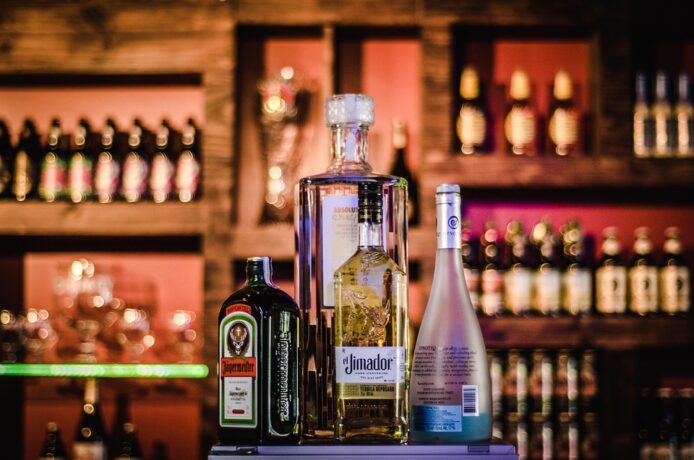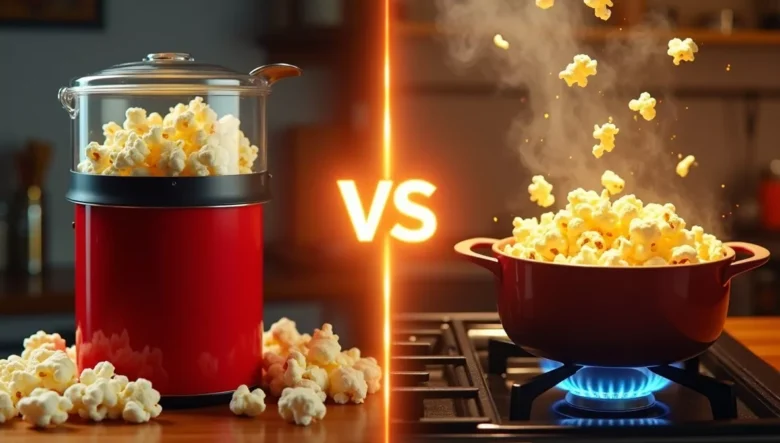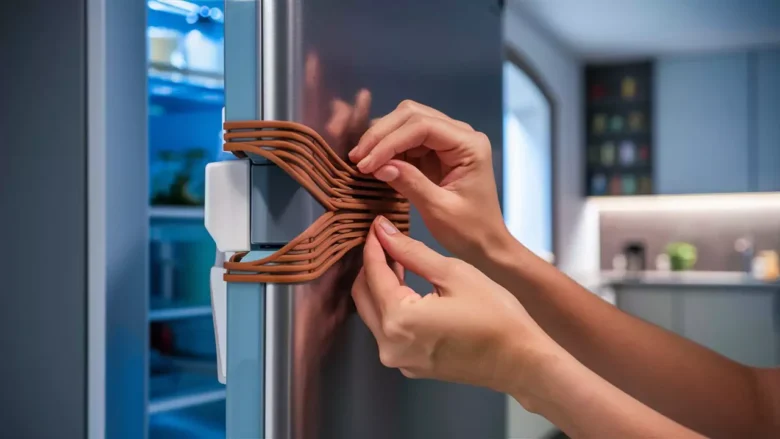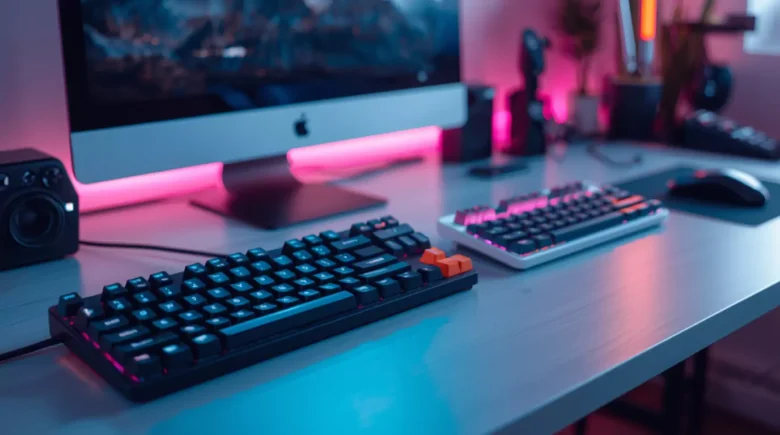I was making Sunday breakfast last week.
- Why Burnt Bacon Grease Sticks So Hard
- The Ammonia Method (My Go-To Solution)
- 💖 You Might Also Like
- The Baking Soda Paste Method
- The Dryer Sheet Hack
- The Nuclear Option: Oven Cleaner
- ✨ More Stories for You
- Prevention Tips That Actually Work
- When to Just Replace Them
- Different Stove Types Need Different Approaches
- 🌟 Don't Miss These Posts
- FAQs
- Can I put drip pans in the dishwasher?
- How often should I clean my drip pans?
- Is it safe to use ammonia indoors?
- What if the grease is really old and thick?
- Can I use these methods on non-stick drip pans?
- The Bottom Line
The bacon was sizzling.
Everything smelled amazing.
Then I looked down.
Black, crusty burnt bacon grease everywhere.
On my drip pans.
If you’ve ever cooked bacon, you know this pain.
The grease gets hot.
It spatters.
It burns.
And suddenly your nice drip pans look like they survived a kitchen fire.
Don’t worry.
I’ve got you covered.
Why Burnt Bacon Grease Sticks So Hard
Here’s the thing about burnt grease.
It’s not just dirty.
It’s chemically bonded to your drip pans.
When grease gets super hot, it polymerizes.
That’s fancy talk for “it turns into plastic-like crud.”
This is why scrubbing with dish soap doesn’t work.
You need to break those bonds.
The Ammonia Method (My Go-To Solution)
This method works like magic.
I learned it from my neighbor who’s been cooking for 40 years.
What you need:
- Household ammonia
- Large ziplock bags or garbage bags
- Rubber gloves
- Well-ventilated area
Here’s how to do it:
- Remove the drip pans from your stove completely
- Put each pan in its own bag with about 1/4 cup of ammonia
- Seal the bags tight – no air should escape
- Let them sit overnight (8-12 hours minimum)
- Open bags outside – the fumes are strong
- Rinse with warm water and watch the grease slide right off
The ammonia doesn’t actually touch the grease much.
It’s the fumes that do the work.
They soften that burnt-on mess.
💖 You Might Also Like
The Baking Soda Paste Method
Don’t have ammonia?
No problem.
This method takes more elbow grease but works great.
What you need:
- Baking soda
- Water
- Old toothbrush or scrub brush
- Dish soap
Steps:
- Mix baking soda with water until you get a thick paste
- Spread it all over the burnt areas – really coat them
- Let it sit for 20 minutes
- Scrub in circles with your brush
- Rinse and repeat if needed
The baking soda is mildly abrasive.
Plus it cuts through grease naturally.
The Dryer Sheet Hack
This one sounds weird.
But it actually works.
Here’s what to do:
- Fill your sink with warm water
- Add 2-3 dryer sheets to the water
- Submerge your drip pans for 1-2 hours
- Use the dryer sheets to scrub the burnt grease
- Rinse clean
The fabric softener in dryer sheets breaks down grease.
Who knew?
The Nuclear Option: Oven Cleaner
When nothing else works.
Go nuclear.
Important safety notes:
- Use heavy-duty rubber gloves
- Work outside or in a well-ventilated area
- Follow all label instructions
Process:
- Spray oven cleaner generously on the burnt areas
- Let it sit for the time specified on the can
- Scrub with a brush if needed
- Rinse thoroughly with lots of water
This stuff is serious.
It’ll remove anything.
Including skin if you’re not careful.
✨ More Stories for You
Prevention Tips That Actually Work
Look, cleaning burnt grease sucks.
Prevention is way better.
Here’s what I do now:
- Line drip pans with foil before cooking bacon
- Use lower heat – bacon doesn’t need to be on high
- Clean spills immediately while they’re still warm
- Replace cheap drip pans every 6 months instead of fighting them
The foil trick alone will save you hours.
Just toss it when you’re done.
When to Just Replace Them
Sometimes drip pans are beyond saving.
Replace them if:
- They’re warped from heat
- The coating is peeling off
- They smell even after cleaning
- Rust is forming
New drip pans cost like $15.
Your time is worth more than that.
Different Stove Types Need Different Approaches
Electric coil stoves:
- Drip pans pop out easily
- Usually chrome or porcelain
- Can handle all these cleaning methods
Gas stoves:
- Drip pans might be part of the burner assembly
- Check your manual before removing
- Usually need gentler cleaning
Glass top stoves:
- No drip pans, but same grease problems
- Use the baking soda method on the surface
- Never use ammonia on glass tops
🌟 Don't Miss These Posts
FAQs
Can I put drip pans in the dishwasher?
Most can go in the dishwasher, but check if they’re dishwasher-safe first. The burnt-on grease might not come off completely though.
How often should I clean my drip pans?
After every messy cooking session, ideally. At minimum, once a month if you cook regularly.
Is it safe to use ammonia indoors?
Only in well-ventilated areas. I prefer doing it outside or in the garage with the door open.
What if the grease is really old and thick?
You might need to repeat any of these methods 2-3 times. Sometimes the first round just loosens things up.
Can I use these methods on non-stick drip pans?
Skip the abrasive scrubbing with non-stick surfaces. Stick to ammonia or gentle baking soda paste.
The Bottom Line
Removing burnt bacon grease from stovetop drip pans doesn’t have to ruin your day.
Try the ammonia method first.
It works 90% of the time with almost zero effort.
If that doesn’t work, move to baking soda paste.
Still stuck? Break out the oven cleaner.
But honestly?
Prevention beats cleaning every single time.
Line those pans with foil and thank me later.
Your Sunday morning bacon will taste just as good.
And your drip pans will stay clean.
That’s a win-win in my book.


